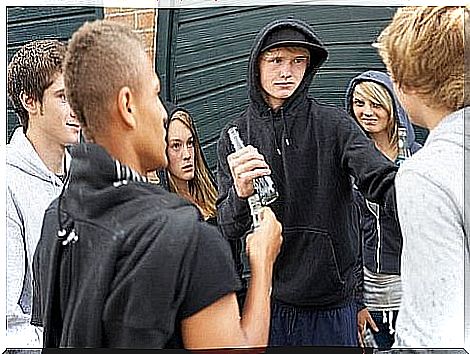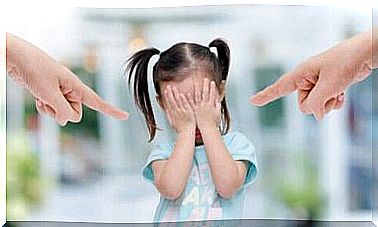Youth – 7 Tips For Parents With Rebellious Teenagers

Are you dealing with rebellious teenagers?
Youth is an important phase in the individual’s growth, and a foundation on which our identity is laid. Many families usually do not accept – or do so reluctantly – the process of a young person becoming independent. They still consider children to be just children.
But teenagers tend to believe that they themselves are capable of or have the initiative, and they set this “family disconnect” in motion. This is an inevitable stop on the road to independence or autonomy (Lamas 2007). Sometimes this path is a bumpy one, and the desire for independence can turn into rebellion.
It is in this context that most conflicts between young people and their families begin. During these years, young people often blame their discomfort on members of their families. They become frustrated and have difficulty relating intelligently to other people.
Therefore, it is important that the family helps the teenager to find his place in life. They should help the young person find effective strategies that allow him or her to improve his or her relationship with the outside world. Sometimes adults forget that teenagers still retain many of their childish qualities while trying to interact in increasingly complex contexts. However, we can not treat them like children, and that is exactly where the difficulty lies.
Follow your child
The interest in exploring strategies independently is what makes young people behave strangely. They are trying to find their place in a world that, eventually, begins to open up to them. Do not forget that at this age they still lack the knowledge of how to interact in external environments. They will often feel lost, but they will not ask for help either, because it will compromise the very independence they are trying so hard to achieve.
Children can adopt family strategies and become “prefabricated” young people, or they can break free from what they have been taught and search for their own identity. Following this process is important for them to be able to take these steps from childhood to adulthood. If the family is not willing to participate in this process, it will not be long before rebellious tendencies are seen in the teenager.

Family structure and adolescence
To demonstrate the influence of family structure on the origins and continuation of problems in adolescence, we often use Fishman’s description of rebellious youth (Lamas 2007). The rebellious youth grow up in a family structure characterized by porous boundaries and limitations. This is evident in families where family members are closely linked.
In this type of family, everyone knows everyone. Porous personal boundaries often mean that these families follow outside advice. The low hierarchy that characterizes these family structures makes the problem worse, and the children become powerful members of the family.
Sometimes young people respond to frustration with excessive rage and establish relationships with their peers and partners that are full of passion, intense infatuation, jealousy and breakup followed by spectacular reunions. This intolerance of frustration can provoke rebellious and confrontational teens.
In several learning theories, especially behavoristic learning theories, we find that the best way to raise healthy and functional youth is a childhood where there are achievements, but also challenges and frustrations. If we never let our children get frustrated by not achieving certain goals, we will raise selfish monsters. They will believe that they have the right to have everything, just because they are who they are. This can even create rebellious teens.

More is not better
This type of upbringing is increasingly taking place in the family nuclei. We believe that giving our children everything means that we are better parents, but nothing can be further from the truth. If we raise children in a culture where we do everything for them, then when they reach adolescence, they will not understand the new demands we place on them, and can thus become problematic youth and tyrants.
Create a close relationship with your children
The goal of this section of the article, along with the 7 tips we are going to give you, is not to offer you any kind of “expert advice”. Rather, it is to encourage parents to connect and find a way to create a close relationship with their children and teens. Not all tips can be used for the same family or the same youth, nor do they apply to the same teenager and family all the time. Therefore, you should consider the best ways you can apply these tips in your individual situation.

First, if we have a positive relationship with our teenage son or daughter, it will be easier to have a positive influence on them. This influence can also be negative if we do not do it right. Also remember that if you do not have this type of relationship, it is never too late to try to create it. To do this, it is important that we know our children’s characteristics and interests. This is how we can connect to them. To put it simply , we need to enter their world, and then we need to understand how it works.
7 tips to help you with rebellious teens
Let’s take a look at these 7 general ideas that can help us deal with rebellious teens:
- Establish boundaries. Living together in a family requires rules that must be respected. It is also important that our child knows the consequences of not following these rules.
- Invest time and energy to improve how we raise our children. If we do this, the chances of solving any problematic situations increase significantly.
- Stick to decisions and make sure you practice what you preach. We must set an example and give them the opportunity to follow it.
- Avoid comparisons. Constantly comparing them to their siblings or friends can damage their self-concept and make them rebellious because of it.
- Avoid unnecessary pressure. Teenagers need to have their own goals. Adults must follow them in their choices, but we must not put pressure on them to meet goals we could not when we were young.
- Accept that our children are not perfect. If our child makes a mistake, they should accept the consequences, even if it will hurt us and we will feel obligated to protect them.
- Be honest with them. Sincerity is a tool we do not usually use much with children. Family relationships are so hierarchical that we sometimes ignore some of the most effective techniques for approaching teenagers.
Just be with your teen
In summary, youth, almost simultaneously, are suspicious and naive, hopeless and apathetic, communicative and closed, cautious and risk-taking. Many teenagers are a pure contradiction with rich nuances – that’s why they confuse us so much.

Most of them are concerned about their social image. They either show this directly, or try to find out that they do not care what others think. They appreciate our help, but what they appreciate most is our trust and ability to make mistakes. And all of this in mind, understanding them or worrying about them is not as important as being there for them.
Bibliography
Barkley, RA, & Benton, CM (2000). Your Defiant Teen: 10 Tips to Resolve Conflict and Build a Better Relationship with Your Child (Vol. 48). Planet Group (GBS).
Céspedes, A. (2007). Children with Tantrums, defiant teenagers. How to best manage behavior disorders in children (5th ed.). Santiago de Chile: Unlimited SA.
González Barrón, R., Montoya Castilla, I., Casullo, MM, & Bernabéu Verdú, J. (2002). Relationship Between Styles and Strategies for Psychological Well-being in Adolescents. Psicothema, 14 (2).
Lamas, C. (2007). Understanding Problematic Adolescence. Revista Redes, 18, 63-85.
Quiroga, S., Paradiso, L., Cryan, G., Auguste, L., & Zaga, D. (2004). A Therapeutic Approach for Pre-Teens with Problematic Behavior: Challenging Negativist Disorder and Dissocial Disorder. In the 11th Research Conference. School of Psychology, University of Buenos Aires.
Quiroga, SE, & Cryan, G. (2007). Manifestations of Violence in High-risk Adolescents. The 14th Research Conference and Third Meeting of Researchers in Psychology of Mercosur, School of Psychology, University of Buenos Aires.
Rizo Ruiz, AB (2014). Cognitive-behavioral Intervention in a Case of Defiant Negativist Disorder in a Teenager. Journal of Clinical Psychology with Children and Adolescents.
Selekman, M. (1996). Open Roads for Change: Brief Therapy Solutions for Adolescents with Problems. Editorial GEDISA.









